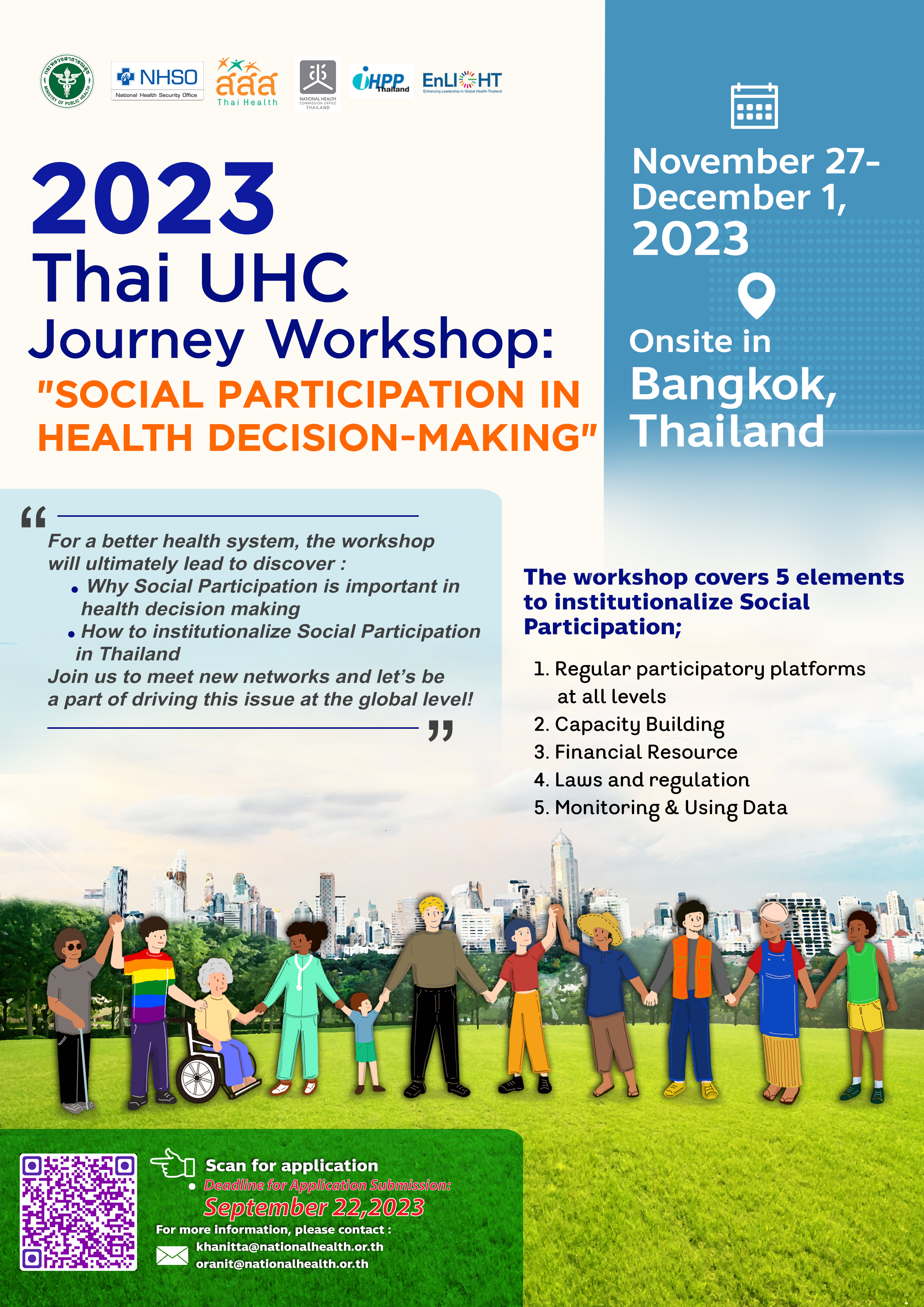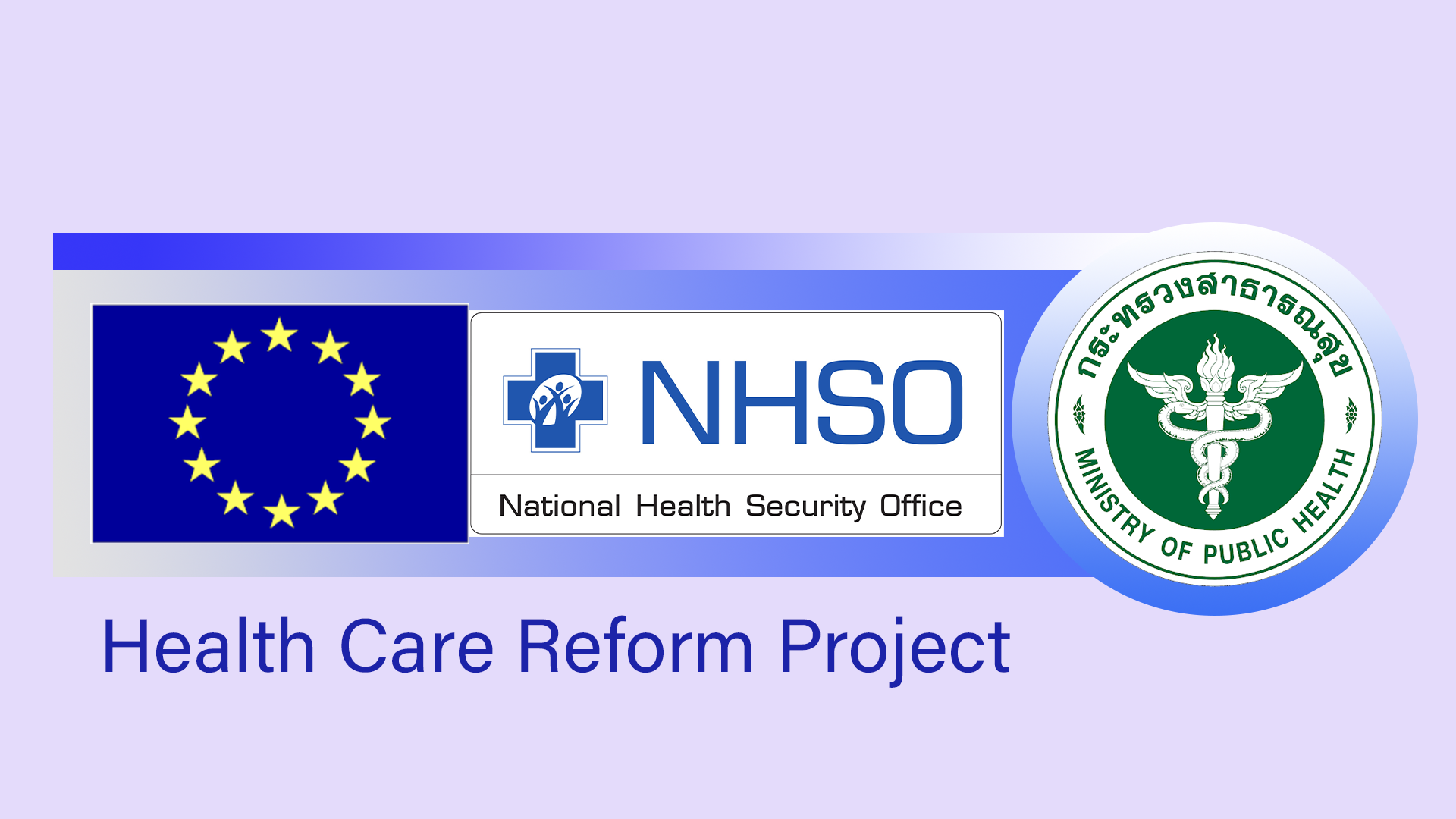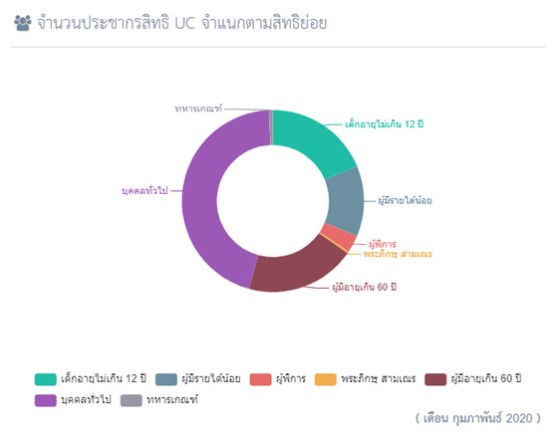UHC: Thailand's key to COVID-19 fighting
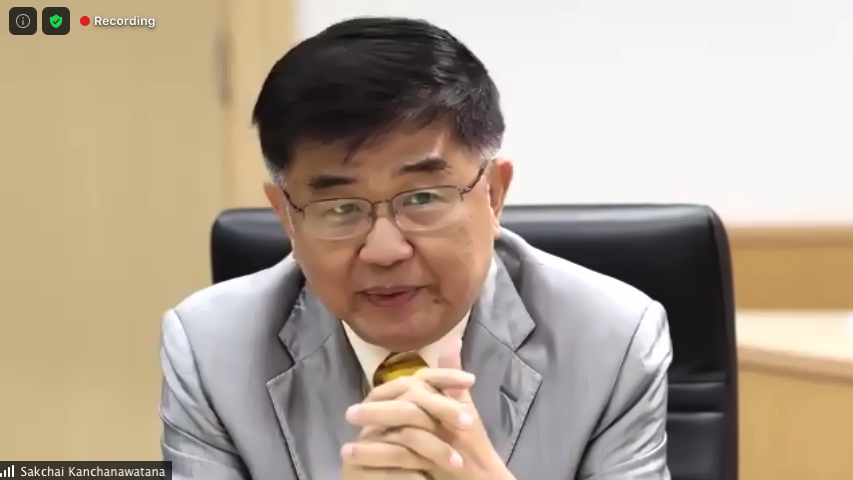
"We have learned that UHC contributes to the strengthening of our health system, making it more resilient and more responsive. UHC is also a key to enhance global health security," said Dr. Sakchai Kanjanawatana, secretary-general of the National Health Security Office (NHSO),
He spoke in a Thursday online panel "Investing in Health: The Key to Building Back Better from COVID-19 and Accelerating Progress for UHC and Sustainable Development", which is a side event the United Nations High-Level Political Forum on Sustainable Development. The panel was hosted by the World Health Organization in collaboration with the Group of Friends of UHC and Global Health, UHC2030.
"Thailand's success stems from a combination of public health and social measures, including active surveillance and screening, state and local quarantines, effective communication strategies, enhanced social safety nets, and awareness-raising campaigns," he said.
"UHC scheme rests on Three Principles---equity, efficiency, and participation."
Equity means both Thai nationals and foreigners in Thailand can access COVID-19 related health services.
During the pandemic, UHC budget was allocated to cover the costs of testing, tracing, treatment, and additional compensation for health workers---making Thailand's health crisis response efficient.
Participation is essential to fight the pandemic, said Dr Sakchai.
Local communities have engaged in health emergency response through the Community Health Fund, which provides financial support to local communities' health promotion and prevention programs.
Parts of the fund was spent on procuring face masks and hand sanitizers, and supporting village health volunteers who are trained to look after the health conditions of local communities.
Village health volunteers have played a crucial role in fighting the pandemic by monitoring people's movement, conducting house visits and check-ups, disseminating information, and reporting to the public health authorities.
Dr Sakchai said that the pandemic had created the "new normal" that urges public health sector to improve UHC.
The necessity of social distancing magnifies the potential of telemedicine. Currently, only 1% of state hospitals run telemedicine services, prompting NHSO to expand the services to 5% by next year.
During the city lockdowns, NHSO initiated service delivery such as sending medicines out by post and allowing patients to pick up their medicines at local pharmacies.
"It doesn't have to take COVID-19 for us to realize the importance of UHC in advancing the global health agenda and in realizing the Sustainable Development Goals," said Dr Sakchai.
"We can learn from each other so we can do better. Together, with commitment and determination, UHC can become a reality for all."
………………………..10 July 2020
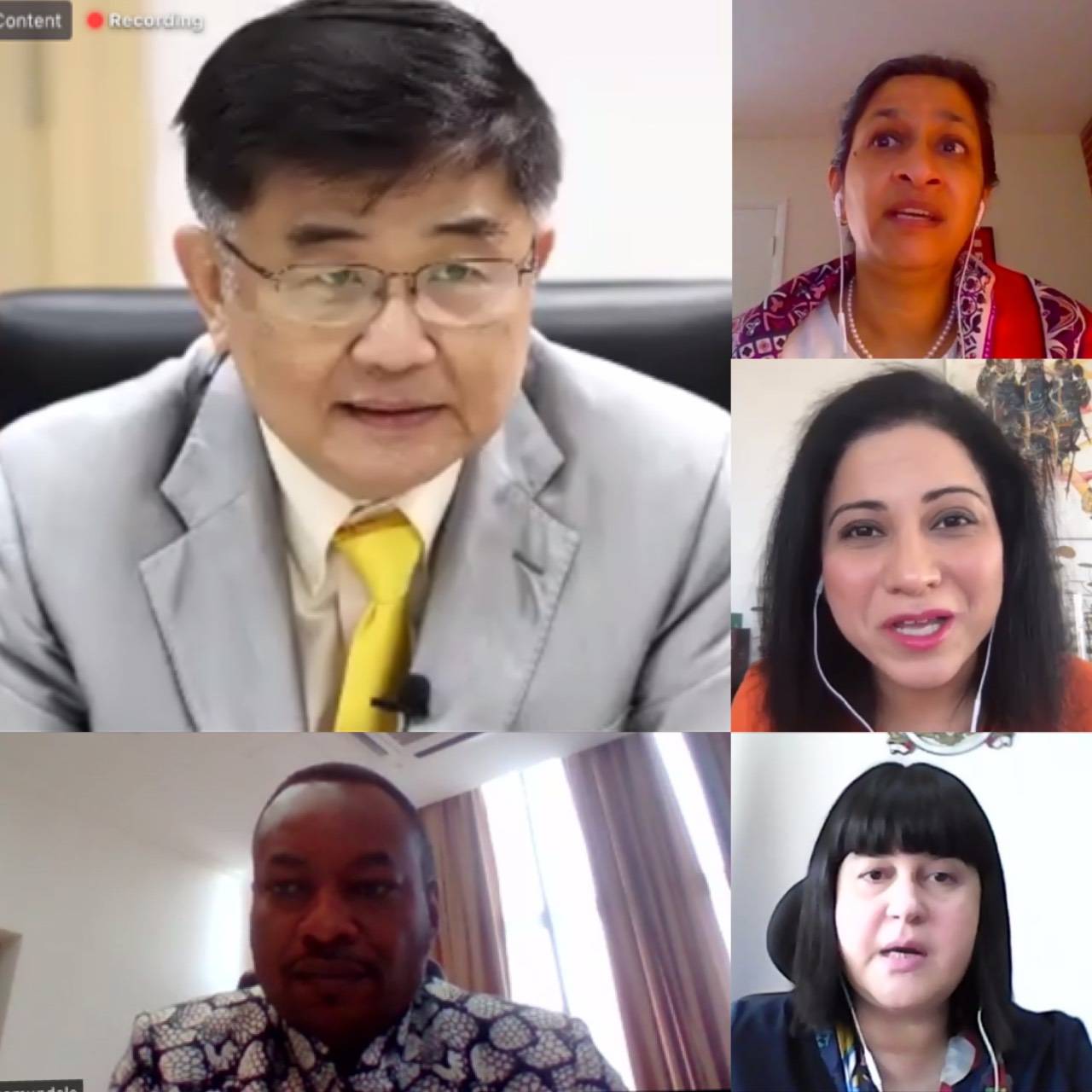
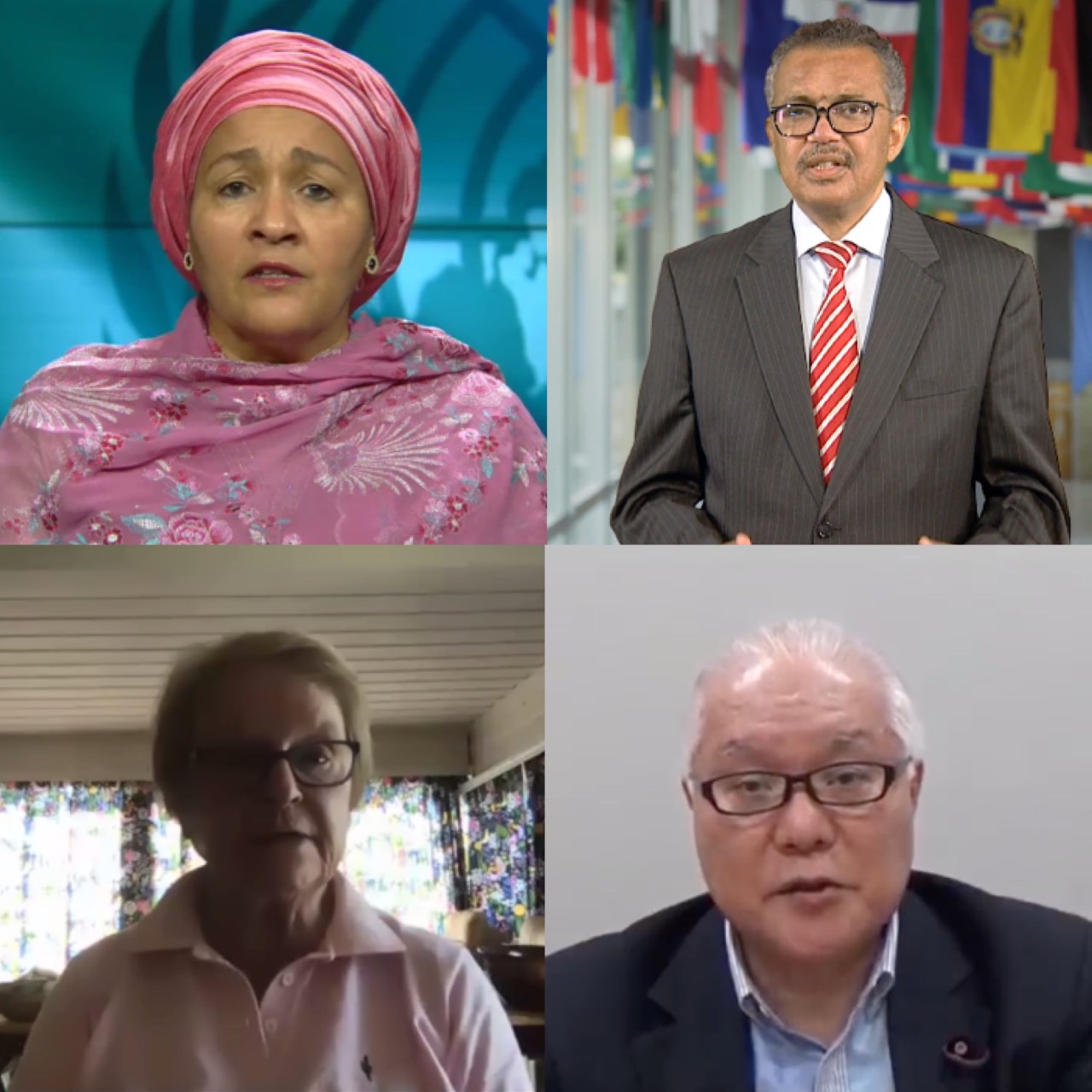
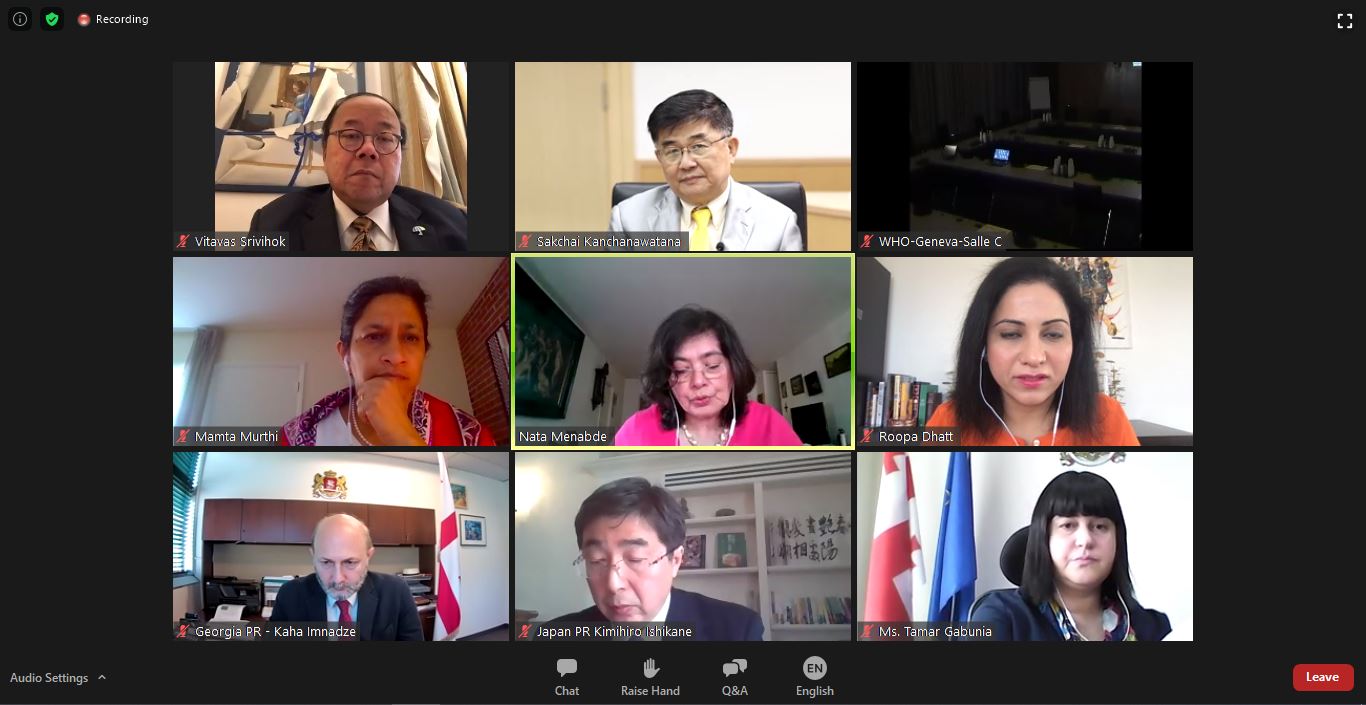
IN DEPTH
UHC: Thailand's key to COVID-19 fighting

"We have learned that UHC contributes to the strengthening of our health system, making it more resilient and more responsive. UHC is also a key to enhance global health security," said Dr. Sakchai Kanjanawatana, secretary-general of the National Health Security Office (NHSO),
He spoke in a Thursday online panel "Investing in Health: The Key to Building Back Better from COVID-19 and Accelerating Progress for UHC and Sustainable Development", which is a side event the United Nations High-Level Political Forum on Sustainable Development. The panel was hosted by the World Health Organization in collaboration with the Group of Friends of UHC and Global Health, UHC2030.
"Thailand's success stems from a combination of public health and social measures, including active surveillance and screening, state and local quarantines, effective communication strategies, enhanced social safety nets, and awareness-raising campaigns," he said.
"UHC scheme rests on Three Principles---equity, efficiency, and participation."
Equity means both Thai nationals and foreigners in Thailand can access COVID-19 related health services.
During the pandemic, UHC budget was allocated to cover the costs of testing, tracing, treatment, and additional compensation for health workers---making Thailand's health crisis response efficient.
Participation is essential to fight the pandemic, said Dr Sakchai.
Local communities have engaged in health emergency response through the Community Health Fund, which provides financial support to local communities' health promotion and prevention programs.
Parts of the fund was spent on procuring face masks and hand sanitizers, and supporting village health volunteers who are trained to look after the health conditions of local communities.
Village health volunteers have played a crucial role in fighting the pandemic by monitoring people's movement, conducting house visits and check-ups, disseminating information, and reporting to the public health authorities.
Dr Sakchai said that the pandemic had created the "new normal" that urges public health sector to improve UHC.
The necessity of social distancing magnifies the potential of telemedicine. Currently, only 1% of state hospitals run telemedicine services, prompting NHSO to expand the services to 5% by next year.
During the city lockdowns, NHSO initiated service delivery such as sending medicines out by post and allowing patients to pick up their medicines at local pharmacies.
"It doesn't have to take COVID-19 for us to realize the importance of UHC in advancing the global health agenda and in realizing the Sustainable Development Goals," said Dr Sakchai.
"We can learn from each other so we can do better. Together, with commitment and determination, UHC can become a reality for all."
………………………..10 July 2020



Events
UHC: Thailand's key to COVID-19 fighting

"We have learned that UHC contributes to the strengthening of our health system, making it more resilient and more responsive. UHC is also a key to enhance global health security," said Dr. Sakchai Kanjanawatana, secretary-general of the National Health Security Office (NHSO),
He spoke in a Thursday online panel "Investing in Health: The Key to Building Back Better from COVID-19 and Accelerating Progress for UHC and Sustainable Development", which is a side event the United Nations High-Level Political Forum on Sustainable Development. The panel was hosted by the World Health Organization in collaboration with the Group of Friends of UHC and Global Health, UHC2030.
"Thailand's success stems from a combination of public health and social measures, including active surveillance and screening, state and local quarantines, effective communication strategies, enhanced social safety nets, and awareness-raising campaigns," he said.
"UHC scheme rests on Three Principles---equity, efficiency, and participation."
Equity means both Thai nationals and foreigners in Thailand can access COVID-19 related health services.
During the pandemic, UHC budget was allocated to cover the costs of testing, tracing, treatment, and additional compensation for health workers---making Thailand's health crisis response efficient.
Participation is essential to fight the pandemic, said Dr Sakchai.
Local communities have engaged in health emergency response through the Community Health Fund, which provides financial support to local communities' health promotion and prevention programs.
Parts of the fund was spent on procuring face masks and hand sanitizers, and supporting village health volunteers who are trained to look after the health conditions of local communities.
Village health volunteers have played a crucial role in fighting the pandemic by monitoring people's movement, conducting house visits and check-ups, disseminating information, and reporting to the public health authorities.
Dr Sakchai said that the pandemic had created the "new normal" that urges public health sector to improve UHC.
The necessity of social distancing magnifies the potential of telemedicine. Currently, only 1% of state hospitals run telemedicine services, prompting NHSO to expand the services to 5% by next year.
During the city lockdowns, NHSO initiated service delivery such as sending medicines out by post and allowing patients to pick up their medicines at local pharmacies.
"It doesn't have to take COVID-19 for us to realize the importance of UHC in advancing the global health agenda and in realizing the Sustainable Development Goals," said Dr Sakchai.
"We can learn from each other so we can do better. Together, with commitment and determination, UHC can become a reality for all."
………………………..10 July 2020



RESOURCE CENTER
SECRETARY-GENERAL
UHC: Thailand's key to COVID-19 fighting

"We have learned that UHC contributes to the strengthening of our health system, making it more resilient and more responsive. UHC is also a key to enhance global health security," said Dr. Sakchai Kanjanawatana, secretary-general of the National Health Security Office (NHSO),
He spoke in a Thursday online panel "Investing in Health: The Key to Building Back Better from COVID-19 and Accelerating Progress for UHC and Sustainable Development", which is a side event the United Nations High-Level Political Forum on Sustainable Development. The panel was hosted by the World Health Organization in collaboration with the Group of Friends of UHC and Global Health, UHC2030.
"Thailand's success stems from a combination of public health and social measures, including active surveillance and screening, state and local quarantines, effective communication strategies, enhanced social safety nets, and awareness-raising campaigns," he said.
"UHC scheme rests on Three Principles---equity, efficiency, and participation."
Equity means both Thai nationals and foreigners in Thailand can access COVID-19 related health services.
During the pandemic, UHC budget was allocated to cover the costs of testing, tracing, treatment, and additional compensation for health workers---making Thailand's health crisis response efficient.
Participation is essential to fight the pandemic, said Dr Sakchai.
Local communities have engaged in health emergency response through the Community Health Fund, which provides financial support to local communities' health promotion and prevention programs.
Parts of the fund was spent on procuring face masks and hand sanitizers, and supporting village health volunteers who are trained to look after the health conditions of local communities.
Village health volunteers have played a crucial role in fighting the pandemic by monitoring people's movement, conducting house visits and check-ups, disseminating information, and reporting to the public health authorities.
Dr Sakchai said that the pandemic had created the "new normal" that urges public health sector to improve UHC.
The necessity of social distancing magnifies the potential of telemedicine. Currently, only 1% of state hospitals run telemedicine services, prompting NHSO to expand the services to 5% by next year.
During the city lockdowns, NHSO initiated service delivery such as sending medicines out by post and allowing patients to pick up their medicines at local pharmacies.
"It doesn't have to take COVID-19 for us to realize the importance of UHC in advancing the global health agenda and in realizing the Sustainable Development Goals," said Dr Sakchai.
"We can learn from each other so we can do better. Together, with commitment and determination, UHC can become a reality for all."
………………………..10 July 2020



VIDEOS
Thailand's UHC Journey
UHC Public relations
